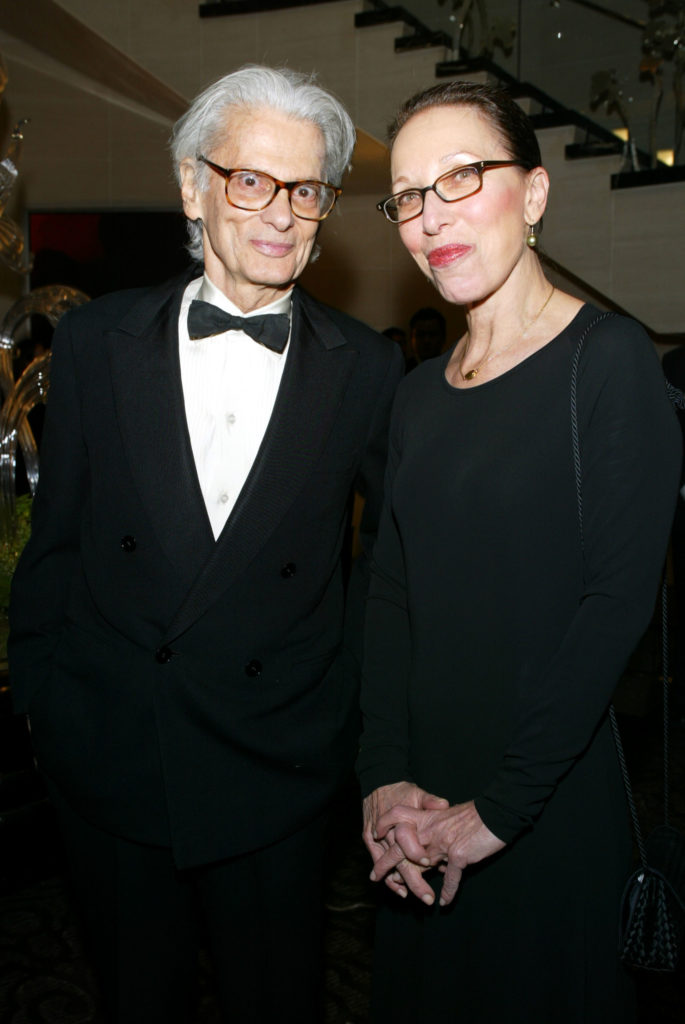Art World
The Richard Avedon Foundation Accuses His Biographer of Lying in a Highly Salacious New Book
A book claims that Avedon was bisexual and had a decade-long affair with Mike Nichols, among other revelations.

A book claims that Avedon was bisexual and had a decade-long affair with Mike Nichols, among other revelations.

Taylor Dafoe

A dishy new biography about Richard Avedon is packed with salacious details about the famed photographer’s personal life. Avedon: Something Personal claims that the photographer was bisexual, that he did some “innocent kissing” with James Baldwin, and that he had a decade-long affair with Mike Nichols (and that both men, at one time, planned to abandon their spouses and elope).
There’s just one problem: The artist’s foundation says the book is riddled with falsehoods.
The biography was co-written by two people close to the artist: Norma Stevens, Avedon’s onetime studio manager who worked with the artist for 30 years and served as the inaugural director of his foundation, and Steven M.L. Aronson, a writer who knew Avedon for nearly four decades.
The foundation initially expressed its displeasure with the book in a statement released soon after it was first published last month by the Penguin Random House imprint Spiegel & Grau. “The book in question was written with blithe disregard for fact and is filled with untruths of various kinds,” the foundation said at the time. “It will take time to compile all of the inaccuracies.”
The dispute became higher profile this week when a New York Times review pushed the text further into the spotlight. The review’s author likened the experience of reading the book to “a feeling of arriving at a party where everyone is at least two drinks (and who knows what else) ahead of you.”
For the Richard Avedon Foundation, however, the experience seems to be more akin to a hangover. On Wednesday, the foundation released an additional statement in response to the Times piece. (The statement was also submitted to the Times as a letter to the editor.)
The foundation’s executive director James Martin—who worked at Avedon’s studio alongside Stevens—lists several episodes in the book that he claims are untrue. (Notably, the statement does not explicitly dispute the salacious details of Avedon’s sex life, although it does say the book contains “a mind-numbing number of factual errors.”)

Richard Avedon with Norma Stevens at the Americans For The Arts 8th Annual National Arts Awards Gala at the Mandarin Oriental Hotel November 11, 2003, in New York City. Photo by Matthew Peyton/Getty Images.
Martin does dispute Stevens’s account that she was by the photographer’s side when he passed away in 2004. (Stevens deploys this particular anecdote early on in the book to illustrate her relationship with Avedon.) Martin, however, says she wasn’t there.
“How do I know?” asks Martin in the statement. “Because on the day that Avedon died in San Antonio, Ms. Stevens was with me and the rest of Avedon’s employees at his studio in New York City. She broke the news to us. Avedon’s death was attended solely by members of his immediate family.”
More significant than the circumstances of his death, though, are the many details of Avedon’s intimate personal life disclosed by Stevens. Martin says that the book was not fact-checked and that Stevens never formally interviewed Avedon.
“Ms. Stevens tries to convince us that Avedon trusted her alone with his deepest secrets (which is untrue), and directed her to ‘out’ him at her own convenience,” Martin says. “The list of errors is far too long to recount, but it causes the book to collapse under the weight of its own sloppiness. Stevens, who holds herself out as the ultimate authority, is instead the proverbial unreliable narrator.”
A representative for the book’s publisher did not immediately respond to a request for comment. Norma Stevens could not be reached for comment.